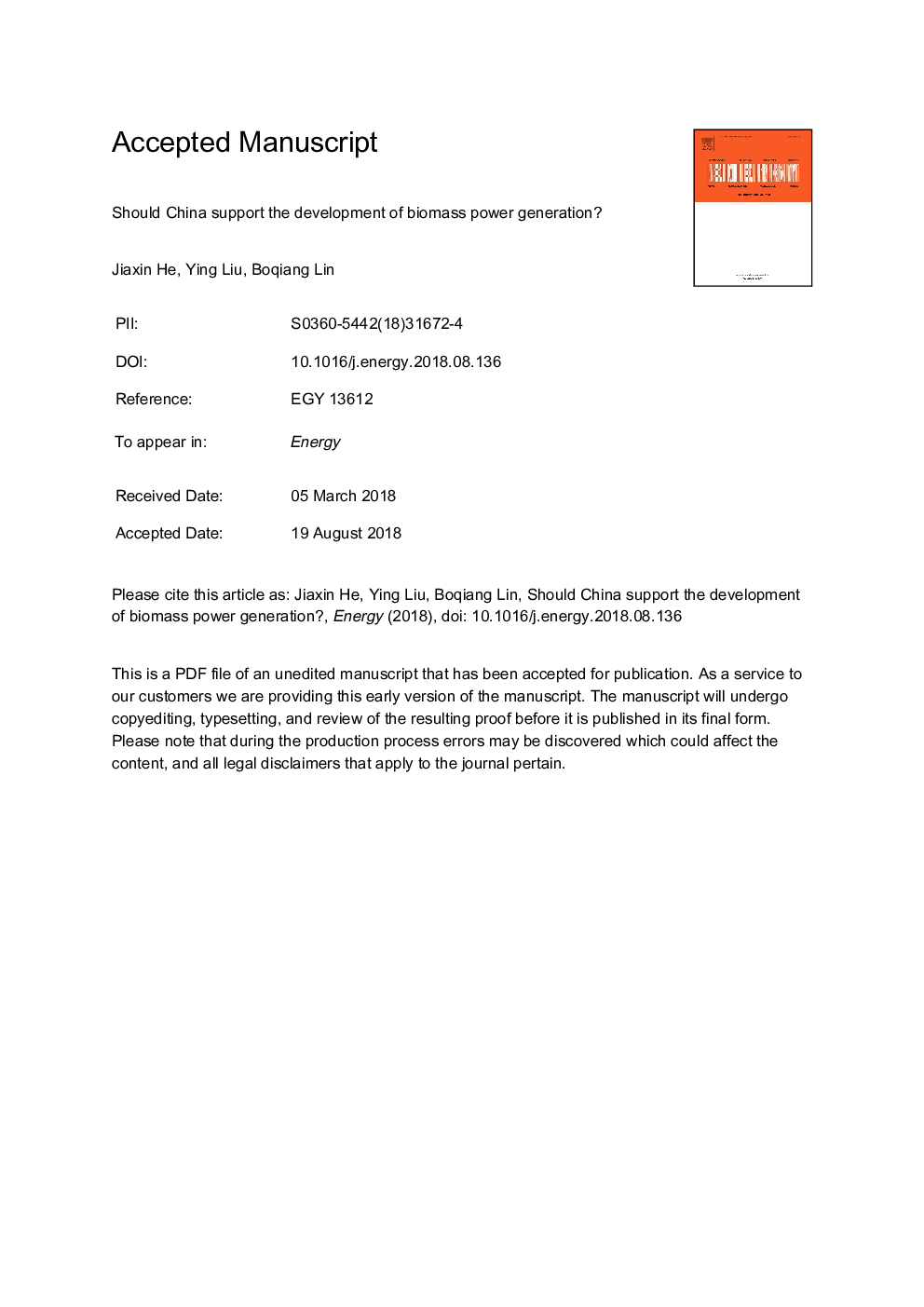| Article ID | Journal | Published Year | Pages | File Type |
|---|---|---|---|---|
| 8948746 | Energy | 2018 | 25 Pages |
Abstract
Compared with wind and solar power, biomass power has grown relatively slowly in China. With abundant biomass resources, the development of biomass electric power in China has potential advantages. This paper analyzed the environmental impact of biomass power in the construction and operation stages in comparison with wind and solar power. The results showed that biomass power produced relatively less emissions in the system construction stage at around 1700 ton CO2-e/MW. In the operation stage, biomass power projects achieved an average of 131462 ton CO2-e per year, which is greater than wind and solar power of equal installed capacity. Biomass power plants could achieve net emission reductions in a shorter time (0.39 year) after operation. The life cycle GHG emissions of biomass power projects are between 42 and 85â¯g CO2-e/kWh. The evidence pointed out that biomass power is worth supporting in China, from the perspective of environmental performance. Local governments should promote the sustainable supply of biomass materials and the development of renewable energy industry should depend on local conditions.
Related Topics
Physical Sciences and Engineering
Energy
Energy (General)
Authors
Jiaxin He, Ying Liu, Boqiang Lin,
